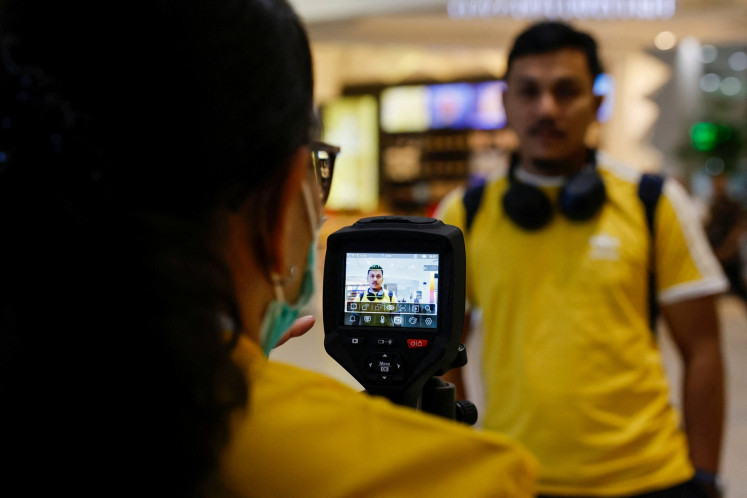Popular Reads
Top Results
Can't find what you're looking for?
View all search resultsPopular Reads
Top Results
Can't find what you're looking for?
View all search resultsTaking up a hobby may help stave off depression
Taking up a hobby could help reduce the risk of depression, according to new research.
Change text size
Gift Premium Articles
to Anyone
 The researchers say the findings support the idea of "social prescribing," which encourages patients to engage in group activities that involve hobbies such as making music, drawing, handicrafts such as sewing, carpentry, collecting, or model-making, which can offer the chance to be creative, express themselves, and relax. (Shutterstock/Pressmaster)
The researchers say the findings support the idea of "social prescribing," which encourages patients to engage in group activities that involve hobbies such as making music, drawing, handicrafts such as sewing, carpentry, collecting, or model-making, which can offer the chance to be creative, express themselves, and relax. (Shutterstock/Pressmaster)
N
ew UK research has found that taking up a hobby could reduce the risk of developing depression and help those who suffer from a period of depression recover.
Carried out by researchers at University College London, the new study looked at 8,780 adults aged 50 and over who were taking part in the English Longitudinal Study of Ageing and assessed every other year from 2004/5 to 2016/17.
At the start of the study, 71.9 percent of the participants reported having a hobby or pastime, while 15.6 percent were above the threshold for depression. The researchers also found that during the course of the study, taking up a hobby appeared to be linked with a 30 percent decrease in the risk of experiencing depression, as well as a decrease in depressive symptoms among both men and women.
Moreover, the findings were found to be consistent among those who were suffering from depression at the start of the study as well as those who were depression-free.
Read also: Delirium, depression, anxiety, PTSD: The less discussed effects of COVID-19
A further analysis of participants who did not have depression or a hobby at the beginning of the study also showed that taking up a hobby was associated with a 32 percent reduced chance of developing depression. For those who had depression and no hobby, taking one up was linked with an improvement in depressive symptoms and 272 percent higher chance of recovering from that depression.
The researchers say the findings support the idea of "social prescribing," which encourages patients to engage in group activities that involve hobbies such as making music, drawing, handicrafts such as sewing, carpentry, collecting, or model-making, which can offer the chance to be creative, express themselves, and relax.
Although they didn't assess whether the participants took part in hobbies with other people, the researchers say that their analyzes consistently showed that the positive findings were independent of any social interaction with others. However, they add that further investigations could reveal whether social hobbies have an even stronger effect.










